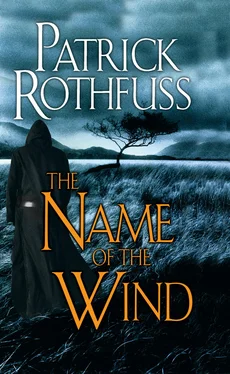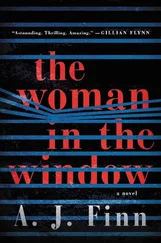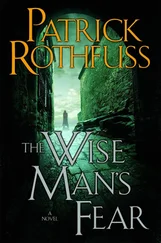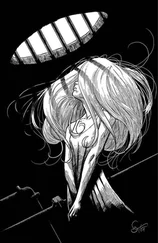“Sense enough in that, these days,” Shep said darkly. He drank off the last of his beer and knocked the empty mug down. “I’ll do another of those.”
“Whatsoever monies I have saved at the time of my death shall go to the Widow Sage,” Bast said loudly across the room. “To help in raising and dowering her three daughters, as they are soon to be of marriaging age.” He gave Chronicler a troubled look. “Is ‘marriaging’ a word?”
“Little Katie certainly has grown up a bit this last year, hasn’t she?” Graham mused. The others nodded in agreement.
“To my employer, I leave my best pair of boots,” Bast continued magnanimously. “And whatsoever of my pants he finds fit him.”
“Boy does have a fine pair of boots,” Cob said to Kote. “Always thought so.”
“I leave it to Pater Leoden to distribute the remainder of my worldly goods among the parish, as, being an immoral soul, I will have no further need of them.”
“You mean, immortal , don’t you?” Chronicler asked uncertainly.
Bast shrugged. “That’s all I can think of for now.” Chronicler nodded and quickly shuffled the paper, pens, and ink into his flat leather satchel.
“Come on over then,” Cob called to him. “Don’t be a stranger.” Chronicler froze, then made his way slowly toward the bar. “What’s your name, boy?”
“Devan,” he said, then looked stricken and cleared his throat. “Excuse me, Carverson. Devan Carverson.”
Cob made introductions all around, then turned back to the newcomer. “Which way you from, Devan?” Cob asked.
“Off past Abbott’s Ford.”
“Any news from that way?”
Chronicler shifted uncomfortably in his seat while Kote eyed him darkly from the other side of the bar. “Well . . . the roads are rather bad. . . .”
This sparked a chorus of familiar complaints, and Chronicler relaxed. While they were still grousing, the door opened and the smith’s prentice came in, boyish and broad-shouldered with the smell of coalsmoke in his hair. A long rod of iron rested on his shoulder as he held the door open for Carter.
“You look a fool, boy,” Carter groused as he made his way slowly through the door, walking with the stiff care of the recently injured. “You keep hauling that around, and folk’ll start talking about you like they do Crazy Martin. You’ll be that crazy boy from Rannish. You want to listen to that for the next fifty years?”
The smith’s prentice shifted his grip on the iron bar self-consciously. “Let ’em talk,” he mumbled with a hint of defiance. “Since I went out and took care of Nelly I’ve been having dreams about that spider thing.” He shook his head. “Hell, I’d think you’d be carrying one in each hand. That thing could’ve killed you.”
Carter ignored him, his expression stiff as he walked gingerly toward the bar.
“Good to see you up and about, Carter,” Shep called out, raising his mug. “I thought we might not see you out of bed for another day or two.”
“Take more than a few stitches to keep me down,” Carter said.
Bast made a show of offering up his stool to the injured man, then quietly took a seat as far from the smith’s prentice as possible. There was a warm murmur of welcome from everyone.
The innkeeper ducked into the back room and emerged a few minutes later carrying a tray loaded with hot bread and steaming bowls of stew.
Everyone was listening to Chronicler. “. . . if I remember right, Kvothe was off in Severen when it happened. He was walking home—”
“It weren’t Severen,” Old Cob said. “It was off by the University.”
“Could have been,” Chronicler conceded. “Anyway, he was walking home late at night and some bandits jumped him in an alleyway.”
“It was broad daylight,” Cob said testily. “In the middle of town. All manner of folk were around to see it.”
Chronicler shook his head stubbornly. “I remember an alley. Anyway, the bandits surprised Kvothe. They wanted his horse,” he paused and rubbed his forehead with the tips of his fingers. “Wait, that’s not right. He wouldn’t have his horse in an alley. Maybe he was on the road to Severen.”
“I told you, it weren’t Severen!” Cob demanded, slapping his hand down on the bar, plainly irritated. “Tehlu anyway, just stop. You’ve got it all mixed up.”
Chronicler flushed in embarrassment. “I only heard it once, years ago.”
Shooting Chronicler a dark look, Kote clattered the tray down loudly onto the bar and the story was momentarily forgotten. Old Cob ate so quickly he almost choked himself, and washed it down with a long swallow of beer.
“Seeing as how you’re still working on your dinner there,” he said none too casually to Chronicler as he wiped his mouth on his sleeve. “Would you mind terrible if I picked up the story? Just so’s the boy can hear it?”
“If you’re sure you know it. . . .” Chronicler said hesitantly.
“Of course I know it,” Cob said as he spun his stool around to face more of his audience. “Alright. Way back when Kvothe was just a pup, he went to the University. But he didn’t live in the University proper, you see, on account of the fact that he was just ordinary folk. He couldn’t afford all the fancy living that went on there.”
“How come?” the smith’s prentice asked. “You said before that Kvothe was so smart they paid him to stay even though he was just ten years old. They gave him a purse full of gold, and a diamond big as his thumb knuckle, and a brand new horse with a new saddle and tack and new shoes and a full bag of oats and everything.”
Cob gave a conciliatory nod. “True, that’s true. But this was a year or two after Kvothe had got all that. And you see, he’d gave a lot of that gold to some poor folk whose houses had all burned down.”
“Burned down during their wedding,” Graham interjected.
Cob nodded. “And Kvothe had to eat, and rent a room, and buy more oats for his horse. So his gold was all used up by then. So he—”
“What about the diamond?” the boy insisted.
Old Cob gave the barest of frowns. “If you’ve got to know, he gave that diamond to a special friend of his. A special lady friend. But that’s a whole different story than the one I’m telling now.” He glared at the boy, who dropped his eyes contritely and spooned up a mouthful of stew.
Cob continued, “Since Kvothe couldn’t afford all that rich living in the University, he stayed in the town nextby instead, place called Amary .” He shot Chronicler a pointed look. “Kvothe had a room in a inn where he got to stay there for free because the widow who owned the place took a shine to him, and he did chores to help earn his keep.”
“He played music there too,” Jake added. “He was all sorts of clever with his lute.”
“Get your dinner into your gob and let me finish my say, Jacob,” Old Cob snapped. “Everyone knows Kvothe was clever with a lute. That’s why the widow had taken such a shine to him in the first place, and playing music every night was part of his chores.”
Cob took a quick drink and continued. “So one day Kvothe was out running errands for the widow, when a fellow pulls out a knife and tells Kvothe if he doesn’t hand over the widow’s money, he’ll spill Kvothe’s guts all over the street.” Cob pointed an imaginary knife at the boy and gave him a menacing look. “Now you’ve got to remember, this is back when Kvothe was just a pup. He ain’t got no sword, and even if he did, he ain’t learned to fight proper from the Adem yet.”
“So what did Kvothe do?” the smith’s prentice asked.
“Well,” Cob leaned back. “It was the middle of the day, and they were smack in the middle of Amary’s town square. Kvothe was about to call for the constable, but he always had his eyes wide open, you see. And so he noticed that this fellow had white, white teeth. . . .”
Читать дальше











